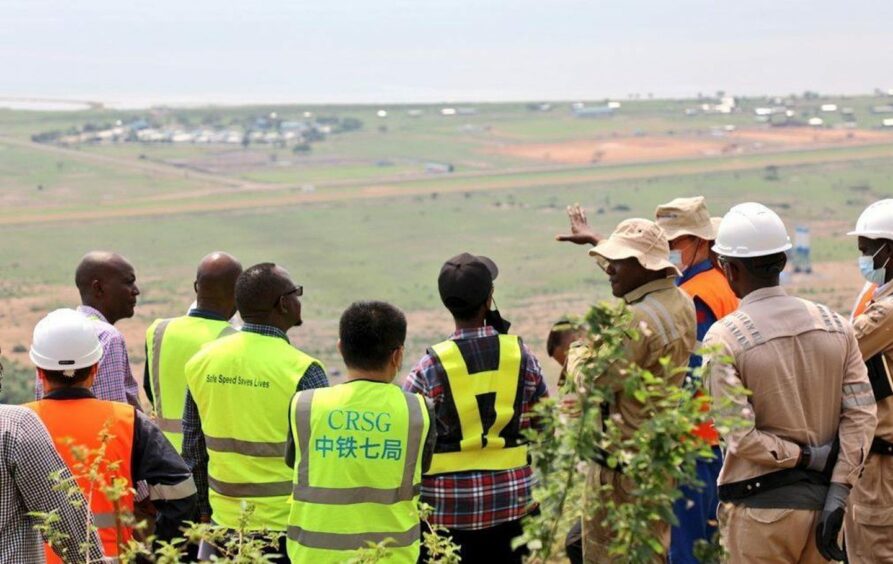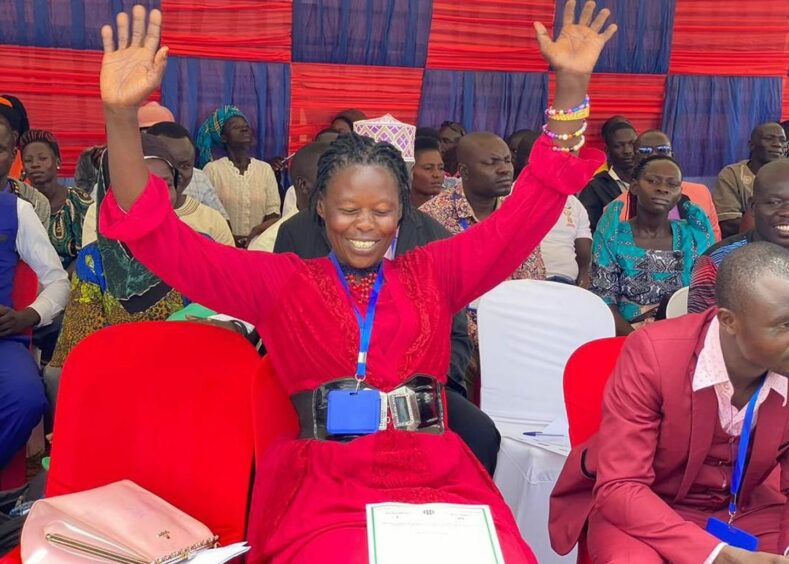 © Supplied by Petroleum Authority
© Supplied by Petroleum Authority Oil companies and environmentalist activists see the same world in wholly differing ways. Rarely is this divide as stark as in discussions around the East African Crude Oil Pipeline (EACOP).
The TotalEnergies-operated project will involve the export of crude from Lake Albert, in Uganda’s west, to the port of Tanga in Tanzania.
The French company and CNOOC International approved the $3.5 billion pipeline earlier this year as part of the broader development. The upstream component focuses on the development of the Tilenga and Kingfisher fields, with expected flows of 216,000 barrels per day.
In addition to the international companies’ support for the Lake Albert project, Uganda’s government – and Tanzania’s – is eager to get the work moving. At the project launch, Ugandan officials called for Total to work to deliver first oil by 2025 or earlier.
Trouble overseas
Abroad, though, it is a different story.
While it still seems most likely that the pipeline will go ahead, some uncertainty is starting to creep into discussions around the project. Without the pipeline, the oilfields of Lake Albert will remain stranded.
“EACOP presents a host of ESG concerns that have been highlighted most vociferously by an organised group of activists from outside the region,” said Veracity Worldwide CEO Jay Truesdale.
“There is frustration from the Ugandan government about efforts to stall development of the country’s own resources. Some even speak about foreign hypocrisy, citing cases of Western governments that grew wealthy in part due to natural resource extraction, either on their own territories or as a result of colonialism.”
Truesdale went on to note defences of the project from an environmental point of view. “Some officials also cite the potential net climate benefits of energy projects in Africa, as compared to the overall carbon footprint of production, refining and transportation of oil to African markets from much greater distances.”
In the crosshairs
The StopEACOP alliance has targeted a number of institutions that might have provided assistance to the pipeline project.
This campaign has a particular focus on the services that provide financing and support to such a project. It has been remarkably successful in keeping up the pressure on banks and financiers.
StopEACOP reports that 20 banks, more than eight insurers and the French, German, UK and Italian export credit agencies (ECAs) have said they will not support the pipeline. The group noted Germany’s Talanx confirmed this week that it would not play a part in EACOP. As a result, StopEACOP puts the number of reinsurers distancing themselves from the project at 12.
It has a number of plans under way to make life hard for the companies involved. One focuses on Marsh, the insurance broker. StopEACOP also provides a handy guide for activists, showing which financiers have ruled out work on the pipeline – and who remains involved.
Standard Chartered, for instance, has not ruled it out. The bank said it is working on due diligence on the project, in order to ensure the pipeline matches its position statements on environmental and social standards. It went on to say such a display of support would require abiding by Equator Principles, which a July report from local NGOs allege EACOP has already breached.
Reputation management
South Africa’s Standard Bank is also potentially involved. It is also working on a due diligence process.
There is a cost to its involvement, though. A PR firm, Edelman, has walked away from its work with Standard Bank over its potential role in EACOP.
The bank had retained Edelman to provide reputation management services. The PR company’s withdrawal illustrates EACOP brings “significant reputational risks”, the NGO said.
Edelman warned earlier this year that it would cut around 20 of its clients over climate change concerns, following an internal review.
“Businesses need to be well equipped to engage EACOP’s full range of stakeholders and build coalitions that promote the project’s economic development and sustainability benefits, while mitigating potential downside effects that have animated opponents,” said Truesdale. “This includes the need to understand the regulatory environment and create trust-based relationships with governments and activists alike.”
Local balance
While Truesdale was relatively sanguine about local opposition, companies should also bear this in mind. Local NGOs have a range of concerns.
Vanessa Nakate, a Ugandan climate activist and member of the Rise Up Movement, has highlighted concerns over the environmental impact of EACOP. While Nakate has expressed concerns around the carbon emissions from the project, she has also raised concerns about the impact on the local wildlife.
The Africa Institute for Energy Governance (AFIEGO) has complained along similar lines. It is also critical of the Ugandan government’s regulatory approach. Companies backing EACOP, for instance, have failed to file the correct licences on time, AFIEGO has said.
Truesdale said there were “relatively few Ugandan activists discussing the project”. There have been some local protests, he noted, but “focused on pocketbook issues, such as inflation and food prices”.
EACOP, and the Lake Albert project in general, could have a positive impact in terms of generating employment and creating new opportunities locally. The company has said construction of the pipeline could create “thousands” of jobs and this might be its strongest suit.
Intellidex chairman Stuart Theobald questioned whether Edelman’s decision had taken into account the development impact of EACOP in East Africa, relative to the climate impact.
“Is the breakup between Edelman and Standard Bank Group another case of E dominating S?” he asked. “What level of increased poverty is deemed an acceptable price to achieve carbon reduction?”
Over and above
Truesdale noted that EACOP was struggling largely because of the international activists, rather than local.
“External activists have had success in determining the course of EACOP’s development, particularly compared to environmental campaigns in other countries where there are already existing extractive industries,” he said. The project is receiving scrutiny far beyond other local extractive projects, such as Mozambique LNG, he continued.
“Many Ugandans believe EACOP is receiving criticism from environmentalists over and above what should be expected.”
Total has focused much of its efforts on securing EACOP’s licence to operate through local activities, such as job creation and the construction of new houses. Tackling international criticism, given the laser focus on emissions over other issues, is much more of a challenge.

